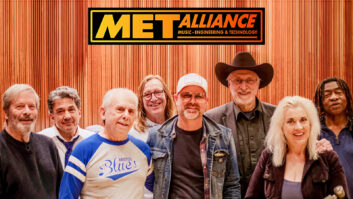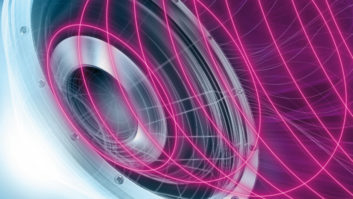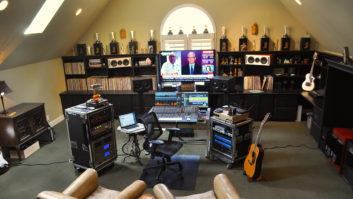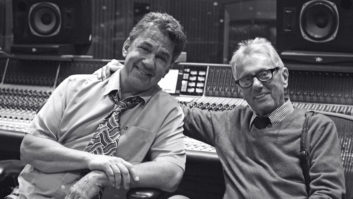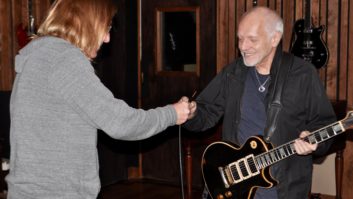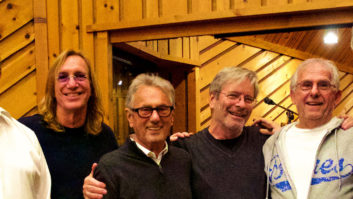You’re about to graduate from a music school with a degree in Music Engineering and Production. All you’ve thought about is how you hope to make it big in the music business.
Most graduates hope to get out, find a studio and get a job as an intern, but the reality is that route has always been next to impossible and it hasn’t changed. As I talk to upcoming graduates, I encourage them to consider being more collaborative and entrepreneurial. You should consider something you may have not thought of before: the idea of building and owning your own studio.
For years and years, building a studio was a huge expense involving a lot of equipment, patch bays, wiring and large machines requiring industrial air conditioning. lt was only for someone with investment money and the available real estate. Personally, I started out at A&R Recording studios in New York and got to learn from the great Phil Ramone. Phil was always the guy that said, ‘You should be thinking about having your own room someday.’ While growing into what was ahead of me, I thought building a room would be an unsurmountable task.
I would have to say that’s all changed. Many of you already know of workable places no one’s ever thought to call a studio (it may not necessarily be a place you can work with a band). For some of you, at first glance, turning that into a studio might not seem feasible, but it’s not unrealistic at all.
The METAlliance Report: Critical Listening and Critical Evaluation
The first thing you should consider is the possibility of finding classmates that might be willing to do this with you. Find two or three people that think the idea could be a worthwhile cause—say, a couple of engineers and a tech major. Having four other people involved would cut down the cost of building the room and your new partners would also bring in work.
After I got my first job in the business, I quickly learned that artists would record at a studio that had a certain distinct sound. They’d hear records that were recorded at these studios and believed they had a marketable difference than anything they’d been hearing. What’s going to make you different than other studios?
What will make your studio stand out? There’s a lot of ways; for instance, in a studio market that’s consistently just about digital apparatus, you might actually consider analog gear. That’s not to say “don’t use digital,” but an analog console might have much more to offer than just a fader control and a DAW. The combination of an analog desk and a DAW could offer your facility a compelling and distinct personality—something that will make you different and identifiable from the rest. Look online and you’ll see there are quite a few analog consoles around, both used and new, some of them going for as little as $4,000.
Pick a DAW of your choice. Most engineers use Pro Tools; I use Nuendo. The one thing l’ve found important is having gear that has unique and proprietary characteristics. l’ve also had tremendous success with digital plug-ins, which saves money and makes recalls easier. l’m also a proponent of a great signal chain that embodies premier cables and connectors (Sommer Cables comes to mind), preamps and EQs. l’m also a firm believer that a great digital clock makes better audio.
A well-varied microphone collection in both pairs and singles is also called for. Aside from the super expensive mics, you can do most everything you need with great mics that are affordable from Audio-Technica, Royer, Shure and Lewitt. Those are just a few examples, but I will say you should have a tube microphone for something more important. Don’t forget Dls, with and without transformers.
Also, you can’t do good work without trustworthy listening—speakers are our windows to our musical world. Find speakers that please you but won’t lie about whether those jeans make you look fat in the mid-range. Until recently, I was using Yamaha NS-10Ms for most of my career, and I feel that they allowed my work to translate pretty well for any listening environment. Find something that you enjoy listening to, but you can be certain that you trust. You don’t want your music going out the door not sounding as good as you had hoped.
Last, and certainly not the least would be, find a good space. You can’t underestimate a thoughtfully designed listening/recording environment with proper isolation and treatment. I would consult with a studio designer to get this done for you; you won’t regret it.
Congratulations on your upcoming graduation!
Grammy award-winning producer/engineer Elliot Scheiner is considered one of the world’s foremost authorities on surround sound and multi-channel mixing. His talents have been recognized with 23 Grammy nominations, six of which he took home, four Emmy nominations, one which he received, and five TEC award nominations, three of which he took home. His accomplishments in the field of multi-channel recordings have been acknowledged with numerous awards, including the Surround Pioneer Award in December 2002. Scheiner is the creator of the ELS Surround system currently residing in five Acura models. Just some of the artists he’s worked with include Foo Fighters, Van Morrison, Toto, The Eagles, Steely Dan, Jimmy Buffett, Eric Clapton, Aerosmith, The Doobie Brothers, Fleetwood Mac, R.E.M. and Beck, among many others.
METAlliance • www.metalliance.com
The METAlliance—Al Schmitt, Chuck Ainlay, Ed Cherney, Elliot Scheiner, Frank Filipetti and George Massenburg, along with the late Phil Ramone—with the dual purpose of mentoring through “In Session” educational events and to convey to the audio professional and semi-professional the group’s choices for the highest quality hardware and software, by shining a light on products worthy of consideration through a certification process and product reviews in this column. The METAlliance Mission: to promote the highest quality in the art and science of recording music.
